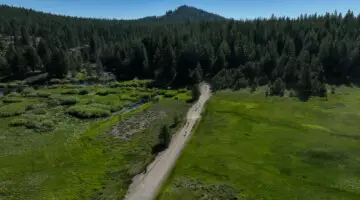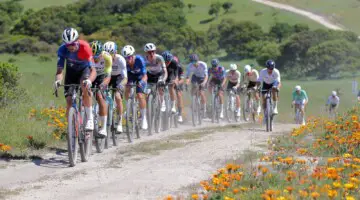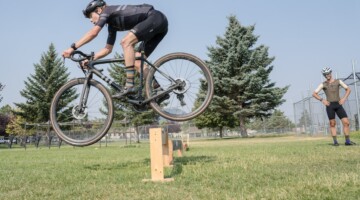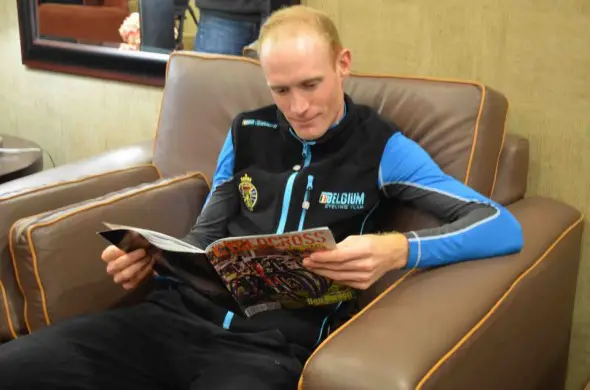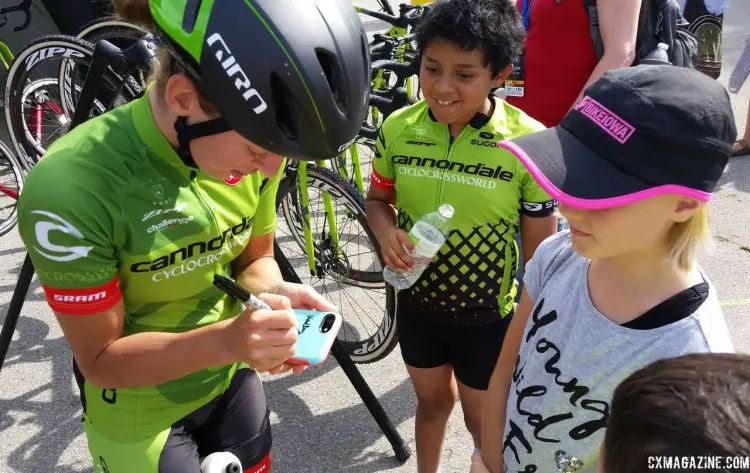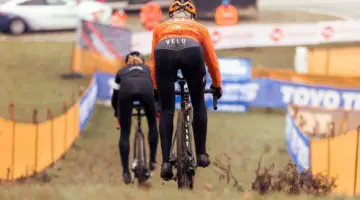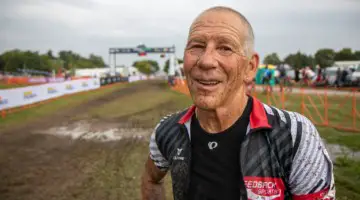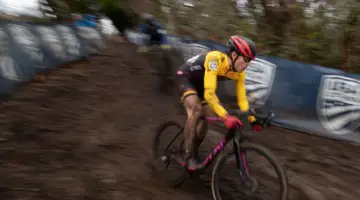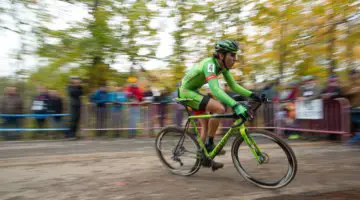First things first, take some time off from training!
It’s been a long hard season and to some extent or another any athlete is burned out at this point. Take some time to live a normal life, let all those little aches and issues resolve and decompress a bit. You’ll be fine, I promise. You can’t take the form you’re in right now and translate it into a good base for next year, so just let some form bleed off so you can prepare for your next build.
I would caution you to find something to fill the hours. You’ve been getting a very real fix every weekend for a few months now when competing. And there’s often a very large social aspect to racing as well. You’re going to find yourself with a lot of free time and maybe not much to fill it.
Find something. Maybe it’s an activity that complements your cycling, like strength training or yoga or maybe it’s another hobby you have, like baking, reading or doing crossword puzzles. Going from having a lot on your plate to nothing, very rapidly, is often a recipe for seasonal depression in athletes. Giving yourself something else to focus on takes the edge off a bit.
Write It Down to Learn from 2017, Prepare for 2018
Once you’ve taken a couple of weeks off I’d encourage you to write some things down. Literally write them down.
There’s good evidence that writing things down by hand (not typing them) helps you remember them. And writing is a much more deliberate act that helps keep you more focused. The time gap is important too. You should have enough space between your season that the events are less personal. The passing of time helps you be more objective about what did and didn’t happen.
At the same time, you don’t want so much time to transpire that you can’t remember events well or don’t have some passion for the game. I think roughly two weeks is enough time that you can look back on events in a depersonalized manner, but also still be fired up about making next year even better.
Write down 3-5 things that you want to keep from the season.
Maybe you really had your tire pressure dialed in or your clothing selection was perfect every race. Perhaps a particular interval workout, or progression of workouts, worked really well for you. Write that down! There’s no reason to reinvent the wheel every year when it comes to your preparation.
Preparation is largely about incremental changes and refining your process. Drastic wholesale changes make it hard to nail down what did or didn’t work for you because there are too many variables to track. Keep the things that worked well, look at potentially changing the rest.
This is also a good time to pat yourself on the back a bit and celebrate the little victories that happened along the way. If you’re not doing that, the sport (and life, for that matter) aren’t as much fun.
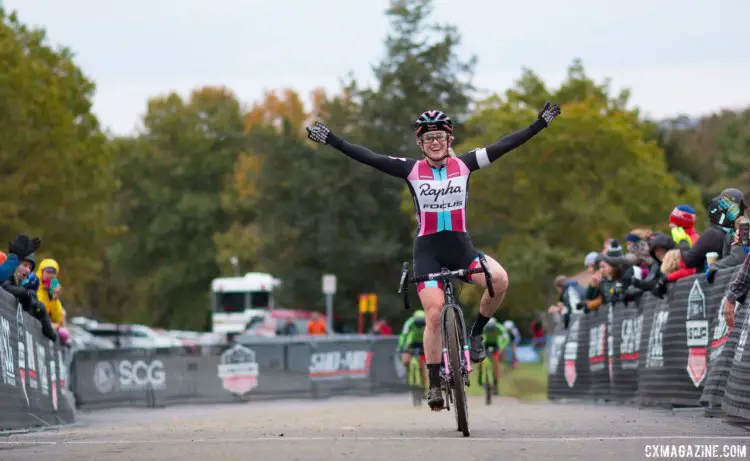
Don’t be afraid to celebrate and remember your successes. Elite Women, 2017 Cincinnati Cyclocross, Day 2, Harbin Park. © Cyclocross Magazine
The next thing is to write down 3-5 things you’d like to do differently.
For me, that means getting my tubular situation figured out before October of 2018, for instance. Maybe you trained too much this year, maybe not enough or maybe you wish you had a coach. Find some things that you want to do differently this coming year. From there you can figure out how specifically to implement those changes. For right now, simply identifying them is a big step.
Be careful how you phrase them too. “I suck at remounts” is one way to write it down. But now you’ve given the issue a label rather than identifying the problem. “Improve remount technique” gives you a path to improving as you break down what needs to improve and how to go about improving it.
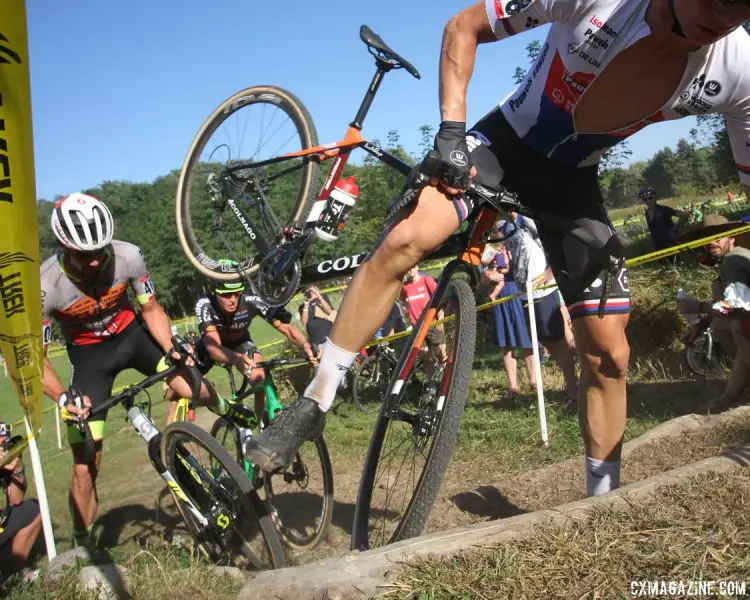
Also make note of things you can improve on. Fridays C2 race at Trek CX Cup. © D. Mable / Cyclocross Magazine
Lastly, write down 3-5 to goals.
I’d encourage them to be process goals like “always have my bags packed” or “learn to glue my own tubulars.” But those often come across as vague or lesser. “Win the local series” is a goal people can get behind. But what happens when someone from out of town moves to your region over the summer? Or some youngster makes the huge leap in ability that people often do when they’re in their 20’s? Did you fail to meet your goal? Not really.
Results-oriented goals aren’t always under your control. Process goals such as packing correctly or keeping your self-talk before a race positive and productive are under your control. Process-based goals lead to the best you, where ever they get your in terms of results.
Results are part of why we race, so feel free to include something along those lines. Whatever keeps you motivated and engaged. Just be honest with yourself about why you’re including those goals and how you’re going to accomplish them.
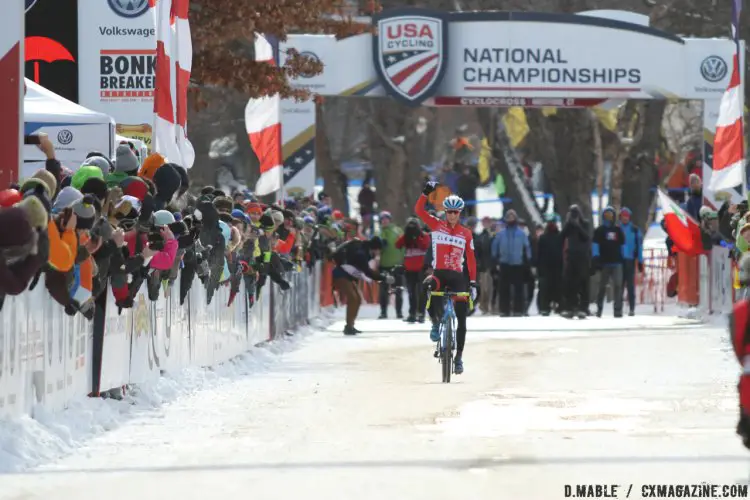
Write down your goals for next season. 2017 Cyclocross National Championships – U23 Men. © D. Mable / Cyclocross Magazine
Now you’ve got a pretty solid road map towards your next season.
Keep doing the things that are working for you, no need to make changes there. Start looking into changing the things that weren’t working for you. Maybe that means a discussion with your coach, attending a skills clinic or just spending an extra day per week working on some particular skill set.
With your goals in mind, start mapping out a pathway to achieving them and focusing on the small day-to-day building blocks that eventually lead to the overarching goal. But don’t do all this on Monday after your last race. Get a little fat, a little out of shape and maybe even watch Mindhunter or Stranger Things 2 on Netflix before thinking about late 2018.
Stay tuned for Part II of this piece from Coach Mayhew next week.







